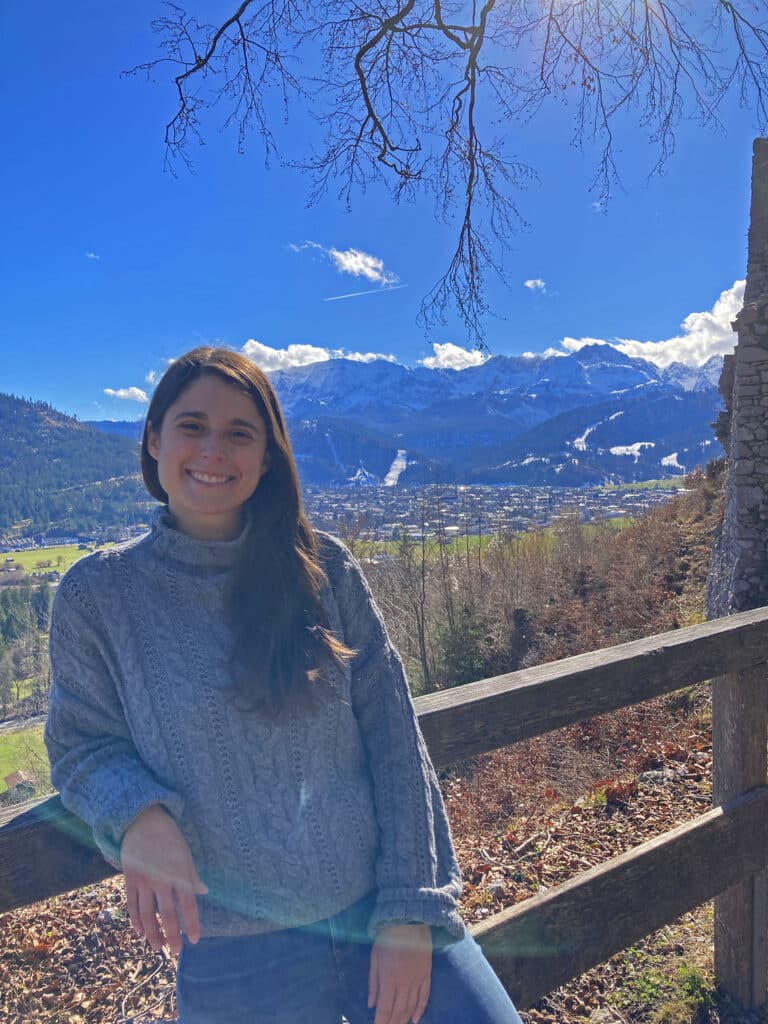Today, Sunday, September 29, the Church celebrates the Day of Migrants and Refugees, and Pope Francis reminds us that “God walks with his people”. – read the Pope’s full message here.
On this day which encourages action and solidarity, let’s learn about the work of Chilean Rosario Lira. She belonged to the Schoenstatt Girls’ Youth in her native country and currently works in Germany as a psychologist accompanying migrants and refugees.
In an interview, she shares more details with us:
Rosario, what is your country of origin and what is your background?
I am Chilean. I studied psychology in my country and then completed a master’s degree in social work in Germany.
What led you to work in Germany?
During my graduate studies, the Russian invasion of Ukraine which gave rise to the current war, was beginning. This situation impacted me so much that I decided to stay in Germany to work helping refugees, if I had the opportunity to do so. And I did. In July 23, I started working for Caritas providing psychosocial support to refugees.
Can you tell us about your work, what exactly do you do?
I offer individual counseling (psychosoziale Beratung). Our task is to provide emotional support, intervene in crisis situations and refer or coordinate with other members of the social network. We are one of the first contacts that refugees have after arriving in the country. Consequently, they have not yet learned German and very few speak English. Thanks to the assistance of translators, we are able to work regardless of the person’s country of origin.
What kind of people do you help and where are they from?
Refugees over the age of 16, regardless of their country of origin or visa status. As long as we have translators who speak their language. The people have to live in the diocese of Regensburg, which is quite a large region.

How did you get to know the Schoenstatt Movement?
I got to know it when I was in school. My parents and my cousin were the ones who introduced me to the Movement.
How does Schoenstatt spirituality help you in your work?
Praying and asking for the ability to listen and give comfort always helps me.
Do you have any anecdote that has marked you in a special way?
The courage of refugees. Their strength, hope, resilience and faith.
In the face of what it means, for example, to be persecuted and threatened for your belief. In the context of the Western world, it is difficult to think that Christians are still persecuted, but it happens every day. Those who choose to believe, even knowing that it can cost them their lives, has been something that has touched me deeply.
So too, those who stand up to authoritarian governments and political violence. Heroically and stoically defending principles such as human rights and democracy.
The pain of the absence of peace. Families that are separated, vital projects interrupted by the obligation to leave your country to survive. Leaving behind your history, your loved ones, your profession, your culture.
We know, that the social and psychological impact that this brings, is a pain that rips generationally… So also the history of Germany and the Movement showed it.
To fight for peace, political and religious tolerance is a task we must urgently undertake. So, too, for the reception of those who have been persecuted for this struggle in their countries.
From your point of view, is there any way in which the Schoenstatt Family in general, all over the world, can help refugees? What would it be?
They could help by collaborating with the Church’s asylums. There is a lack of parishioners to support the parishes so that this can be possible.
They could also help with the integration of new arrivals. Welcoming refugees who are in Anker centers or other similar centers.
Additionally they could help to position the refugee issue from a Christian perspective in the political sphere.
Translation: Maribel Acaron
